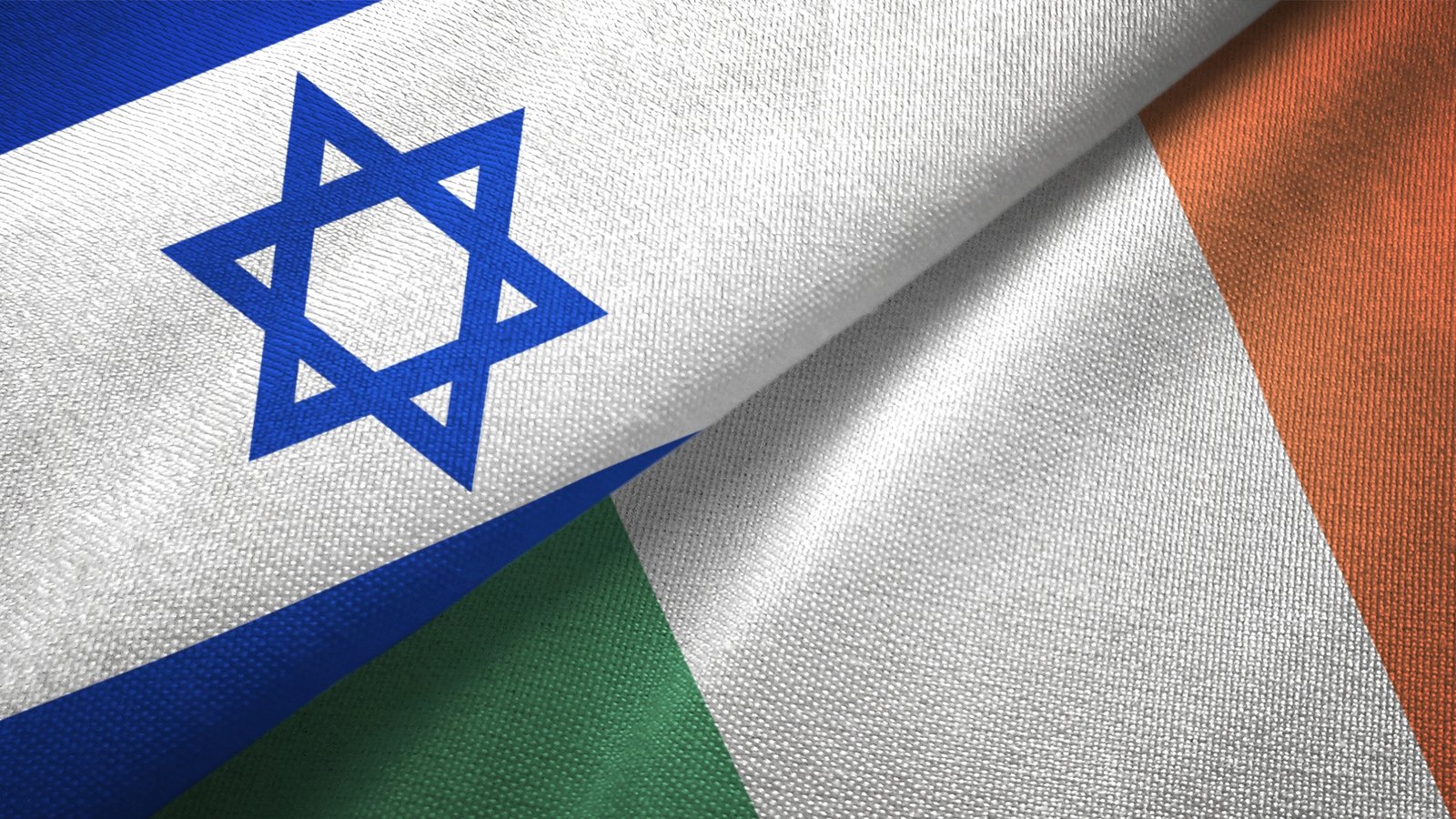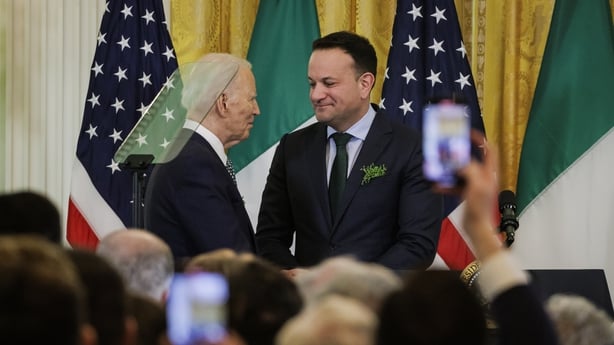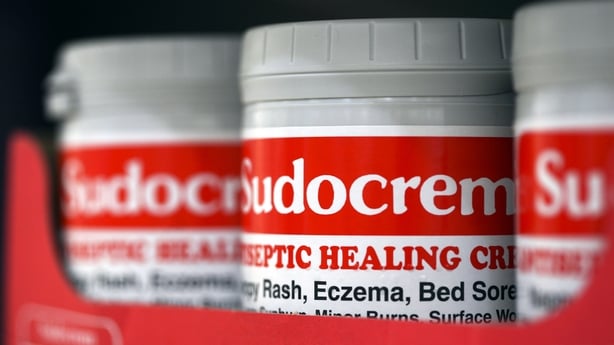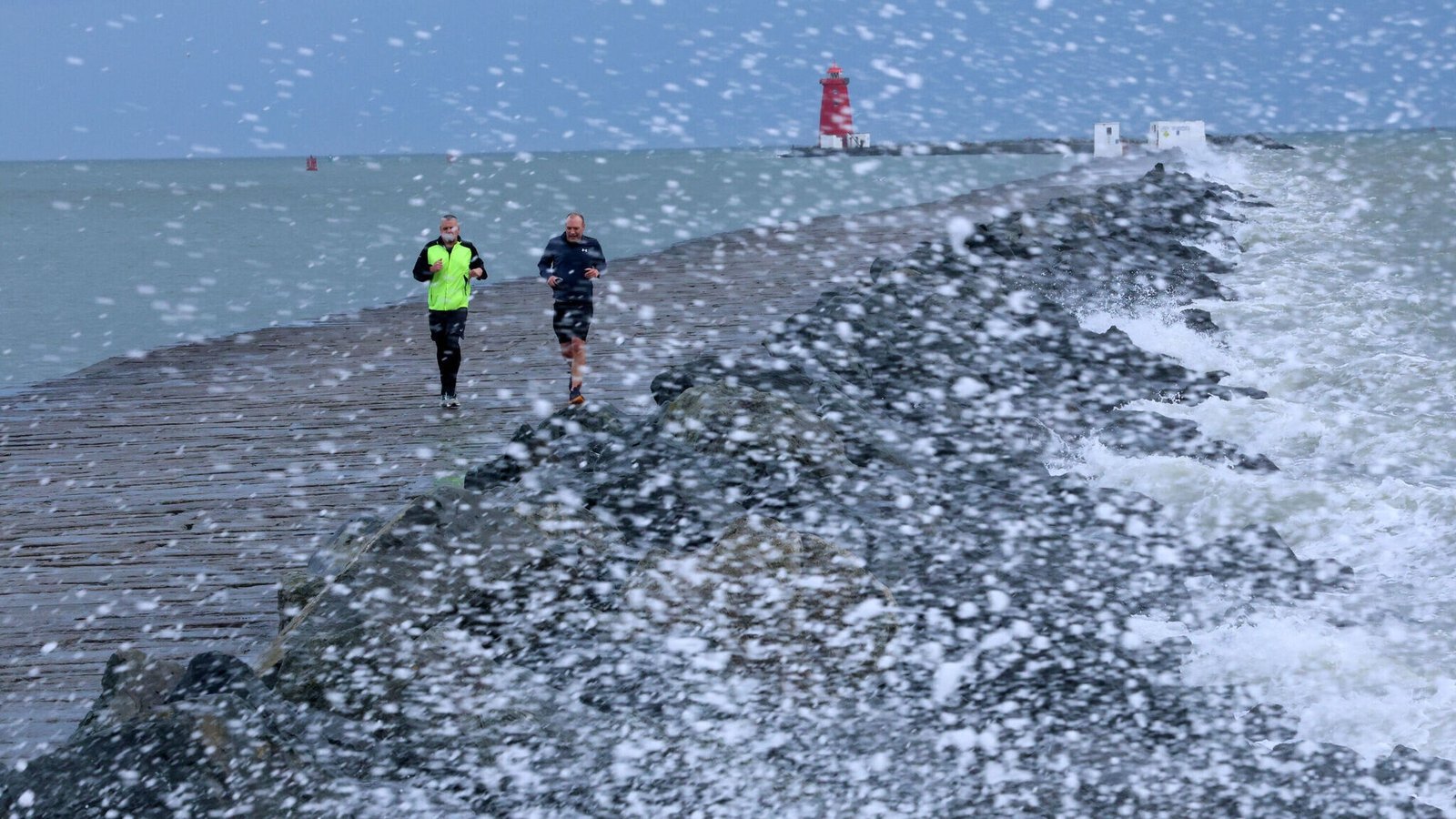Israel warns Ireland over calls to break trade links

The Embassy of Israel to Ireland has warned that calls to break trade links between Ireland and Israel fail to consider the impact on Irish businesses, “as well as any possible reciprocal measures that might be implemented as a result”.
Calls for Ireland to break trade links with Israel have been growing louder, as the conflict in the Middle East rages on.
On the same day that UN Secretary-General Antonio Guterres described blocked relief trucks on Egypt’s side of the Gaza border “a moral outrage”, Labour leader Ivana Bacik told her party’s conference: “Now is the time for Ireland to break diplomatic and trade links with Israel”.
A spokesperson for the Israeli embassy said, “Attempting to disrupt trade between our two democratic states does nothing to help to stop the conflict or promote calm but instead has the effect of stimulating further division while targeting uninvolved parties”.
The spokesperson said, “Those arguing to damage the important trade relationship between our countries appear to want to absolve Hamas, a proscribed terrorist organisation, of any responsibility for the conflict.”
Irish politicians have been vocal on the international stage in calling for a ceasefire in Gaza.

Taoiseach Leo Varadkar made headlines globally when he called for a ceasefire “as soon as possible” during his visit to Washington to mark St Patrick’s Day. The call made headlines largely because US President Joe Biden said “I agree” in response.
However, Ireland has been accused of being all talk. Francesca Albanese, the UN Special Rapporteur on the occupied Palestinian territories, said “The countries that have been most outspoken, like Ireland, what have they done in practice? Nothing.”
Irish businesses are also in a bind over how to respond to the Israel Hamas war.
Companies have been criticised for choosing sides and condemned for staying silent.
Either way, the backlash can have far reaching consequences, damaging revenues and reputations.
Irish entrepreneur Paddy Cosgrave resigned his position as chief executive of Web Summit last year, following comments he posted on social media criticising Israel’s military response to the October 7 attack by Hamas.
He apologised and clarified his comments, but it wasn’t enough to sway major tech firms like Meta, Google, Siemens, Amazon and Intel from boycotting the tech conference weeks later.
Last month, shares in McDonald’s fell about 4% after it missed sales target, partly due to customers boycotting the fast food chain for its perceived support of Israel. Its boss previously acknowledged the impact of the conflict, blaming “misinformation”.
An international corporate reputation advisor told RTÉ News, “Any international companies doing business in Israel are walking a very taut tightrope. Just look at big names like McDonald’s and Starbucks – they’ve both faced lost earnings, protests, lawsuits and reputation backlash around the world”.
“Like Russia’s invasion of Ukraine and the fallout for global brands, many companies face a delicate balance due to long-standing relationships with local market operators in Israel,” the reputation advisor added.
According to Enterprise Ireland, Israel is not a significant export market for their client companies with exports accounting for less than 1% of total EI client exports.
The Embassy of Israel in Dublin said Ireland’s exports to Israel have traditionally been stronger than Israel’s exports to Ireland but in recent years, Israeli exports have seen strong growth. Recent data from Israel’s Central Bureau of Statistics shows that the value of bilateral trade in goods is more than €4 billion.
“The nature of goods imports and exports and also the trade in services reflect the hi-tech focus of both the Irish and Israeli economies,” the embassy spokesperson said.
While Israel is not one of Ireland’s biggest export markets, Ireland competes with Israel for foreign direct investment from US multinationals, and as the Israeli Embassy notes, particularly from technology firms.
Intel, for example, is one of Ireland and Israel’s largest employers. The US chipmaker has facilities in both countries, in Kildare and Kiryat Gat.
Intel announced a $25 billion investment in the new factory in Israel last summer, with Prime Minister Benjamin Netanyahu, at the time, calling it the largest-ever international investment in the country.
Intel’s investment in Israel has led to calls for a boycott of the tech company by the Palestinian-led Boycott, Divestment and Sanctions movement.
When contacted, Intel did not wish to comment on political calls for Ireland to break trade links with Israel, neither did the American Chamber of Commerce Ireland.

Ireland and Israel’s business links also extend to the antiseptic healing cream, Sudocrem.
It was produced in Dublin since the 1940s and is sold in more than 50 countries.
Israel-based Teva Pharmaceuticals acquired Sudocrem in a multimillion euro deal in 2016. In 2021, Teva announced it was moving production to Bulgaria.
Sudocrem is one of the Israeli goods and services that Irish consumers are encouraged to boycott by the Ireland Palestine Solidarity Campaign.
The list includes fruit and vegetables, beauty products, hardware products and insurance and financial services.
The group’s website says, “A boycott can also put pressure on companies whose exports are linked to some of the most evident aspects of the Israeli occupation and apartheid”.
Trade Policy is an exclusive competence of the European Union. The legal basis for Ireland’s and the EU’s trade relations with Israel is the EU-Israel Association Agreement, which entered into force in June 2000.
Taoiseach Leo Varadkar and Spanish Prime Minister Pedro Sanchez wrote to the President of the European Commission, Ursula von der Leyen, requesting a review of Israel’s compliance with its human rights obligations under the agreement.
Article two of the agreement defines respect for human rights as an “essential element” of the agreement.
A spokesperson from the Department of Enterprise, Trade and Employment said, “It is our expectation that the EU institutions will carry forward that review.”

The decision to call on the European Commission to review the agreement has been welcomed by Sinn Féin spokesperson on Foreign Affairs, Matt Carthy, who said it was a move that should have taken place months ago.
He said, “Every diplomatic, economic and political measure at our disposal must now be utilised to sanction Israel for its blatant, cruel and cowardly disregard for international law and the basic rules of humanity.”
Meanwhile, the Government has said that laws proposed by Sinn Féin banning the State from investing in companies operating in illegal Israeli settlements may be unconstitutional.
The proposed legislation, the Illegal Israeli Settlements Divestment Bill 2023, would force the National Treasury Management Agency and the Ireland Strategic Investment Fund to dispose of any interests they hold in companies on a UN human rights database of companies operating in illegal Israeli settlements in the Occupied Palestinian Territories.
Minister for Finance Michael McGrath said in a letter to the Dáil’s business committee that no country has formally adopted the UN list in domestic law and “to do so would be a significant policy change for the State”.





